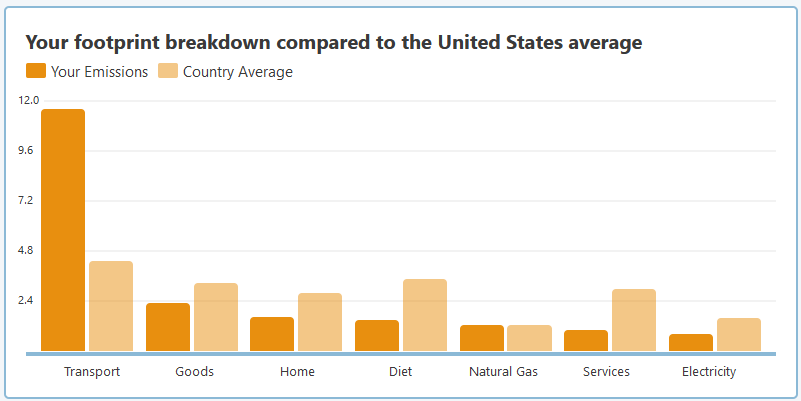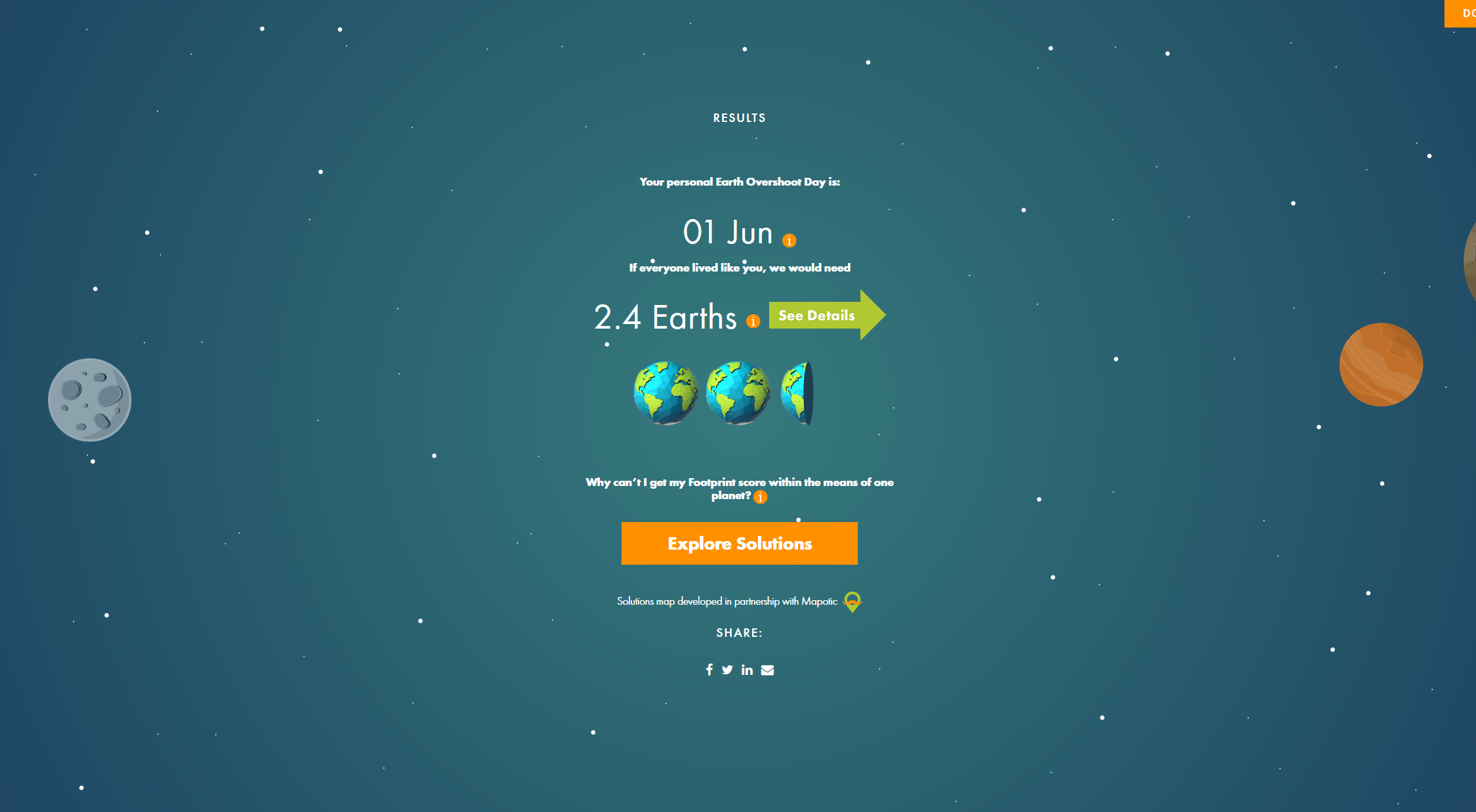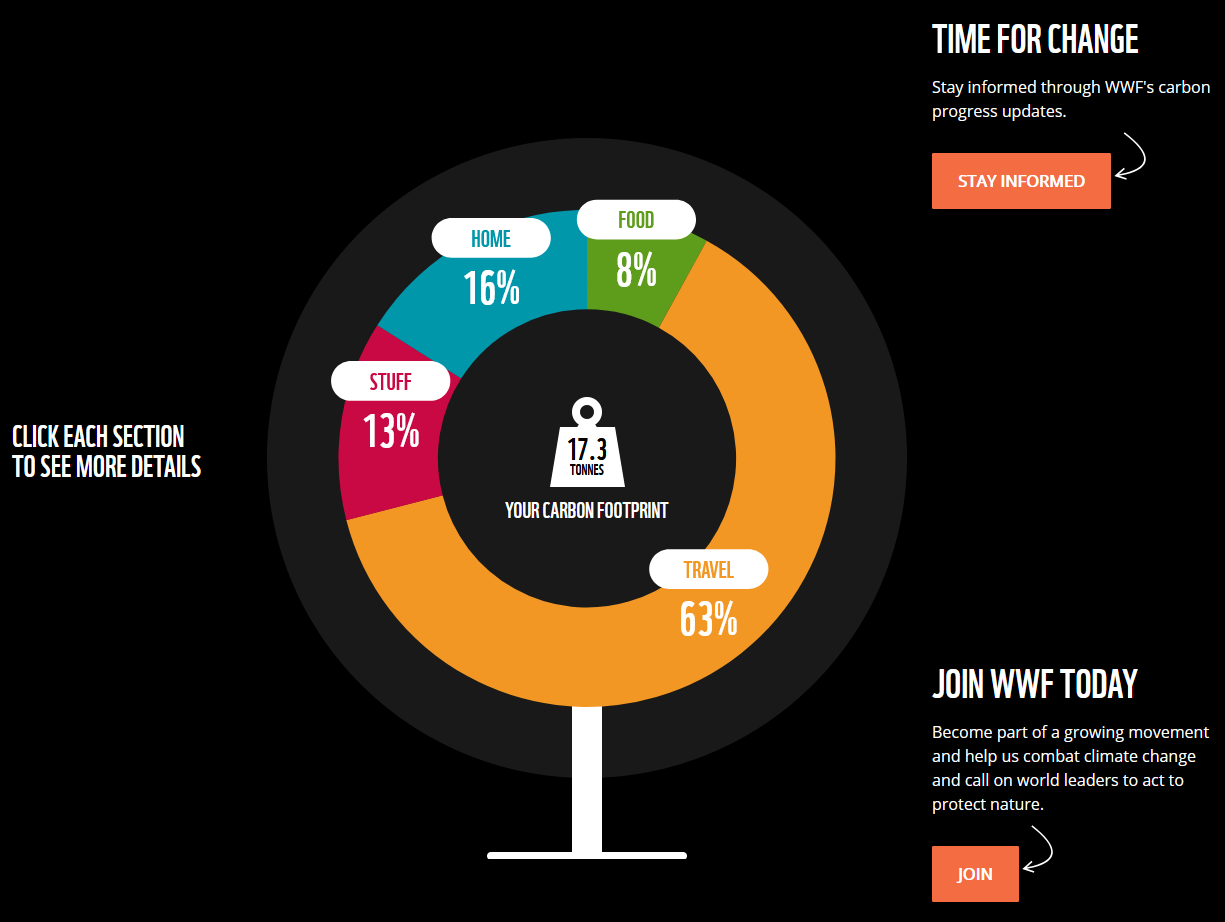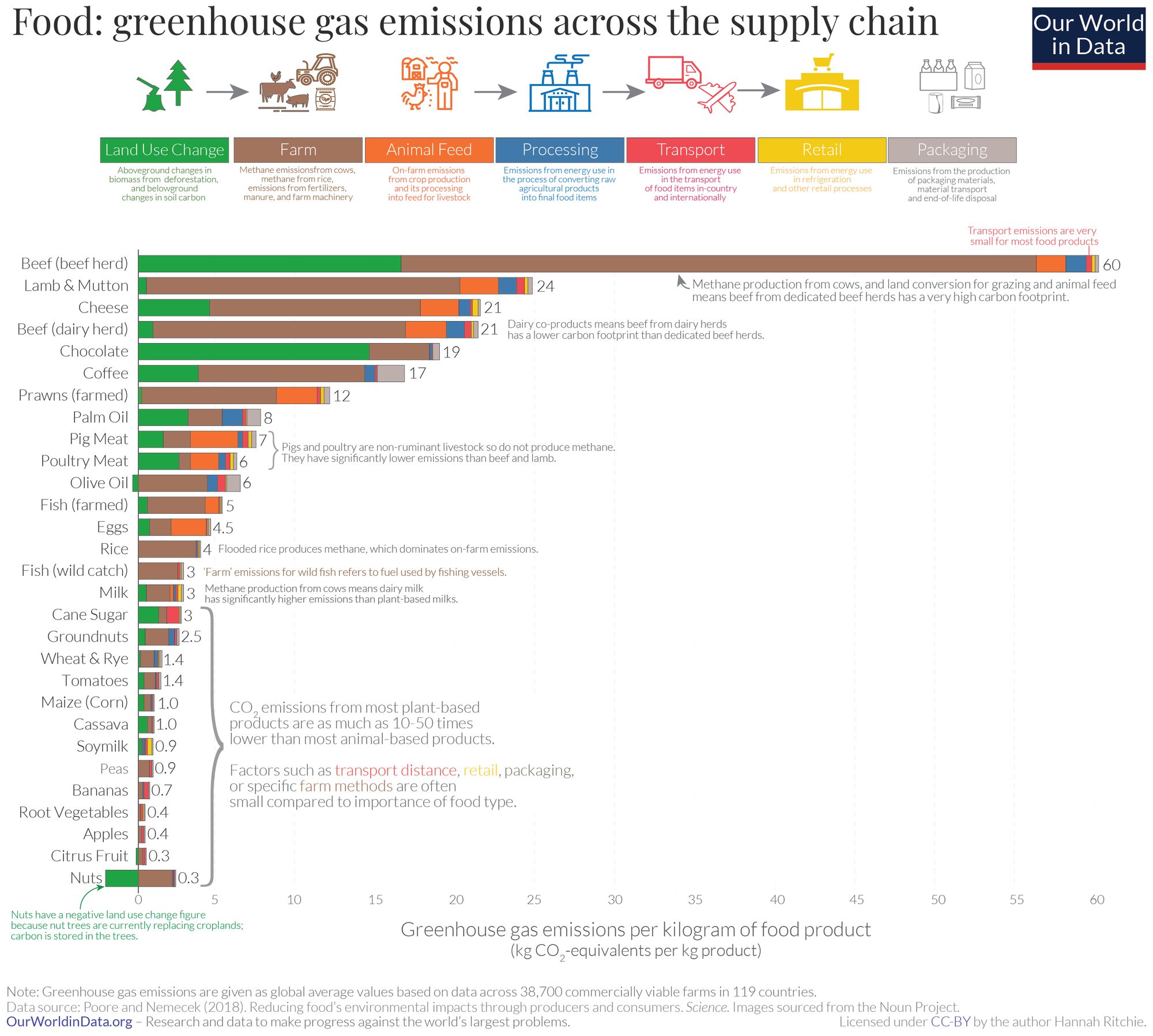My Carbon Footprint

I've been researching ways to lower my carbon footprint. I took carbon emission questionnaires to estimate my impact. The results from one quiz are shown in the title photo compared to an average American's.
I took questionnaires from footprintcalculator.org, the WWF, and Project Wren. The results varied, with Footprint Calculator estimating I am responsible for 7.4 tonnes of CO2 per year, the WWF estimating that I'm responsible for 17.3 tonnes of CO2 per year, and Project Wren estimating 18.5 tonnes of CO2 per year.

Footprint Calculator estimated other environmental impacts such as land use too, but viualized my impact in the above picture, that if everyone on the planet lived like me, we'd need 2.4 Earths to provide the resources.

All three questionaares agreed that the largest share of my CO2 impact is from transportation. Since I rode my bike to work (when we still went into offices) and drove less than 100 miles a week according to my car tracker, a lot of that CO2 output is from airplane travel. The fact that I live on the West Coast and my family and many of my friends are on the East Coast means that I've taken 3 to 4 cross-country roundtrip flights in the past year for holidays and special events. Clearly I could reduce my CO2 production by flying less, and since it's discouraged for public health reasons at the moment, I don't have any more planned.
There are other ways for me to reduce my carbon footprint. I can drive less, including by buying an electric car, I could improve the air sealing and insulation in my rental house, or add solar panels to my roof or yard. I could also eat less high-footprint foods, and shop for less goods and services. Voting for politicians that support the environment is a great way to make an impact too. I've found that Erika Reinhardt's "A Data-Drive Guide to Effective Personal Climate Action" is a comprehensive overview of the main ways that we can lower our environmental impacts.

There will always be a certain level of CO2 emissions needed to support my life and lifestyle, so the only option is to offset those emissions with carbon capture. Though carbon offsets are controversial, given the relatively low cost, I've started paying Project Wren $24.75 per month to support their Amazon Rainforest protection project, to offset the estimated 1.7 tons of CO2 that I produce per month. Though these offsets are better than nothing, they actually represent a temporary step, with the eventual goal to lower my environmental impact even more.